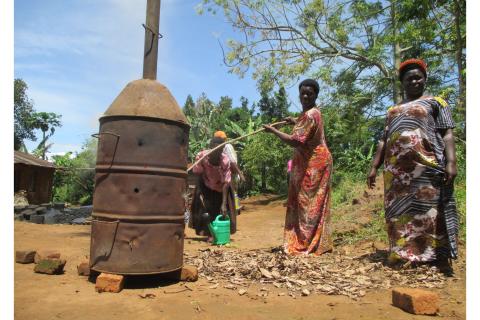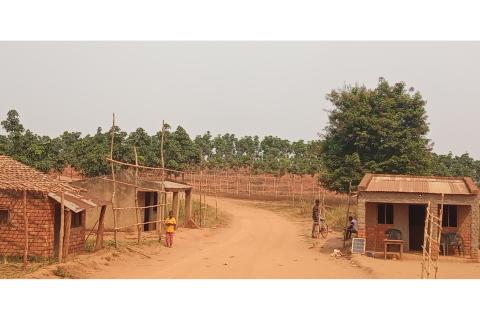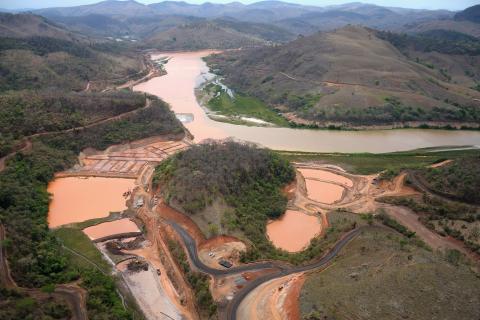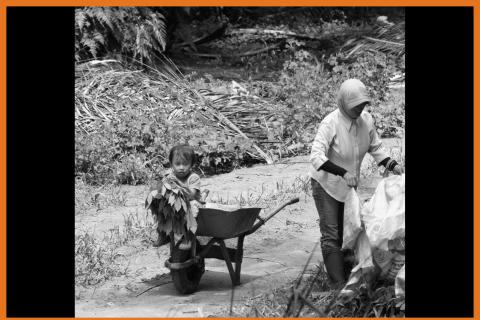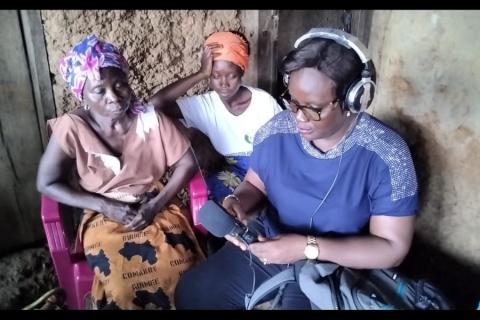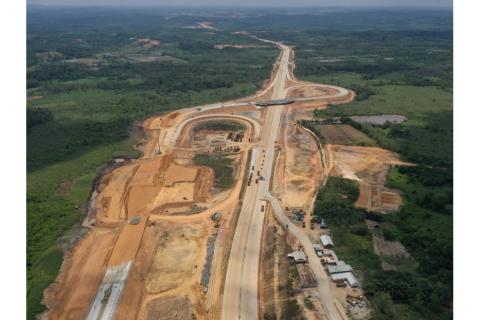In the month of International Women’s Day, this editorial reflects on a central issue for WRM: Why is feminism important in struggles for forests? Feminist struggles place life at the center and show that in order to defend lands and forests, we must transform power relationships.
Bulletin articles
At the foot of Mount Mabu, Mozambique, the expansion of rubber tree monoculture plantations has restricted Manhaua communities’ access to their own territory. This process has occurred by means of systematic abuses, thus depicting the contrast between the different ways the population and foreign capital relate to the environment where they find themselves.
Forests in Cambodia have seen large-scale deforestation with rubber and cassava plantations, illegal logging and other economic interests. Besides, Protected Areas and carbon projects like REDD+ have severely affected forest communities. Despite the criminalization, communities fight back, underlining the important connection between living with their forests and having autonomy to enough, diverse and nutritious food.
A recent Popular Consultation in Ecuador attempted to include, among other things, ‘environmental services offsets’ as a constitutional right. The majority of voters voted against it. However, this attempt serves as a warning about the interests that wish to strengthen policies of appropriation and the commodification of nature.
Indigenous Peoples and communities in the forests of Thailand are threatened with policies that have added a new type of asset: carbon credits. The legislation passed in the name of conservation and climate mitigation is in fact designed to limit the use of forest communities of their land and forests while encroaching them into smaller areas.
Ending fossil fuel burning is urgent, yet oil and gas companies have been ramping up production and profits in 2022. Polluters greenwash their activities saying they offset their emissions with investments in ‘nature-based solutions’, which mean land grabbing, violence and corporate control over vast areas of land in the global South.
This March, we remember a bulletin that denounces the layers of oppression that women living around plantations confront.
What governments agree (or don't agree) on during the UN climate summits is not that relevant in the real world of carbon market expansion. Companies, governments, conservation NGOs, consultancies, brokers, banks and many other interested players are working hard to establish carbon market schemes as ‘the only way forward’.
Oil palm plantations are a central cause of deforestation in southeast Mexico. A network of women in Chiapas have organized to denounce the tactics of coercion and deception employed by the State and companies to get peasants to accept this monoculture on their lands. Their struggle is for the land, for their knowledge, and for their voices to be heard.
In 2022, WRM, along with other allies, spoke with several authors from the publication, “15 Years of REDD: A Mechanism Rotten at the Core”. The aim was to reflect on the different layers of harmful impacts that REDD has caused over the last 15 years. Here is a summary of each contribution.
Oil palm plantation company Socfin has meant violence and oppression for affected communities in several African countries. Sierra Leone is no exception. In collaboration with Aminata Finda Massaquoi, a journalist and the national coordinator of the women’s advocacy network WORNAPI, WRM is releasing a podcast to highlight the voices of women living with the impacts of industrial plantations.
Brazil and Indonesia share a particular similarity: at some point its rulers decided to build a new capital city. While rulers in Brazil built Brasilia some 60 years ago, construction of the new Indonesian capital is currently underway. Both projects reinforce a colonial State, in spite of their promoters claiming the opposite. Both stories however, also show the role of social struggles as a way to revert a history of colonialism. (Available also in Bahasa Indonesia)
